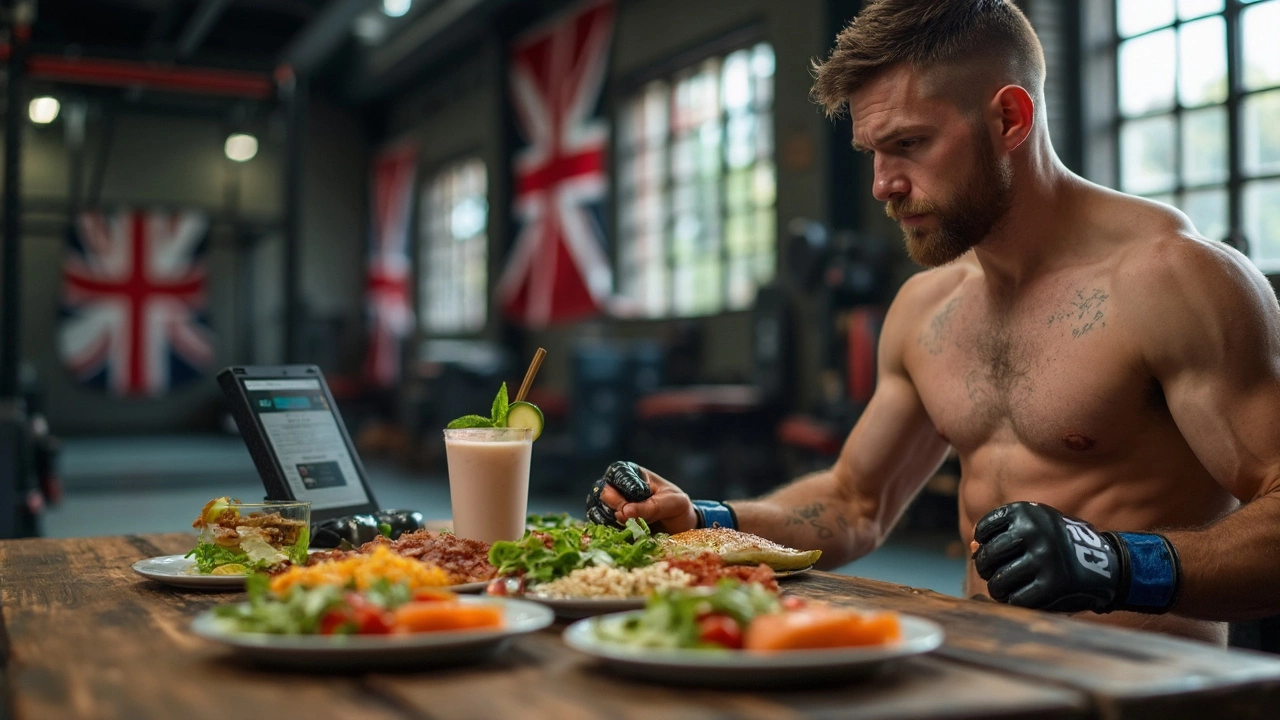UFC Nutrition: What Fighters Eat to Perform at Their Best
Whether you’re stepping into the Octagon or just want to eat like a pro, UFC nutrition boils down to three ideas: fuel the body, recover quickly, and manage weight safely. Fighters don’t survive on pizza and protein shakes alone – they follow a science‑backed plan that balances carbs, protein, fats, and micronutrients.
Daily Meal Blueprint for a UFC Fighter
A typical day starts with a carb‑rich breakfast to power morning training. Think oatmeal topped with berries, a scoop of whey protein, and a handful of almonds. The carbs give glycogen stores that prevent early fatigue, while protein jump‑starts muscle repair.
Lunch is usually a lean protein source plus complex carbs and veggies. Grilled chicken breast, sweet potato, and broccoli with a drizzle of olive oil cover the macronutrient needs without excess calories. The sweet potato supplies steady glucose, and the veggies pack antioxidants that calm inflammation.
Dinner mirrors lunch but often includes fish for omega‑3 fatty acids. Salmon, quinoa, and a mixed‑green salad help joint health and keep the immune system in check. Fighters also add a small night‑time snack—Greek yogurt with a sprinkle of honey—to keep protein synthesis overnight.
Weight Cutting Without Losing Power
Most fighters need to drop a few pounds before a bout, but drastic cuts can wreck performance. The safest route is a gradual calorie reduction combined with increased water intake early in the week, then a controlled water‑loading phase 48 hours before weigh‑ins. This method avoids the “crash diet” effect that leaves you dizzy and weak.
During the final 24 hours, fighters replace most carbs with low‑glycemic foods like leafy greens and lean meats. This reduces glycogen‑linked water weight while preserving muscle mass. After the weigh‑in, re‑hydration is crucial: a mix of electrolytes, a small carbohydrate drink, and a protein shake restores energy fast.
Supplement wisely. Creatine, BCAAs, and a multivitamin can aid recovery, but avoid anything that raises heart rate or alters blood pressure right before a fight. Always check with a sports nutritionist to keep everything legal and safe.
Outside the cage, you can apply these basics to any fitness goal. Focus on balanced meals, time carbs around workouts, and never sacrifice sleep. Consistency beats extreme dieting every time. By treating food as fuel—not a shortcut—you’ll see stronger gains, steadier energy, and better overall health.
UFC nutrition isn’t a secret diet; it’s a disciplined approach that blends science, experience, and personal tweaking. Start with the meal blueprint, respect weight‑cut guidelines, and listen to your body. That’s how champions stay at the top, and how anyone can up their game in the gym or daily life.
- Kaius Farrell
- 0 Comments
Diet Plans of MMA and UFC Athletes: How Fighters Fuel for Glory
MMA and UFC fighters eat like machines—every meal is planned with purpose, aiming for that perfect mix of power, speed, and endurance. This article digs into the real foods fighters swear by, why crash diets can ruin careers, and how lessons from legends can mix with new science. You'll get tips for regular training, dive into weird but true diet stories, and see how fans, fights, and even scandals link back to a fighter’s plate. If you've ever wondered how the pros eat or want a practical guide to MMA nutrition, you're in the right spot.
View More